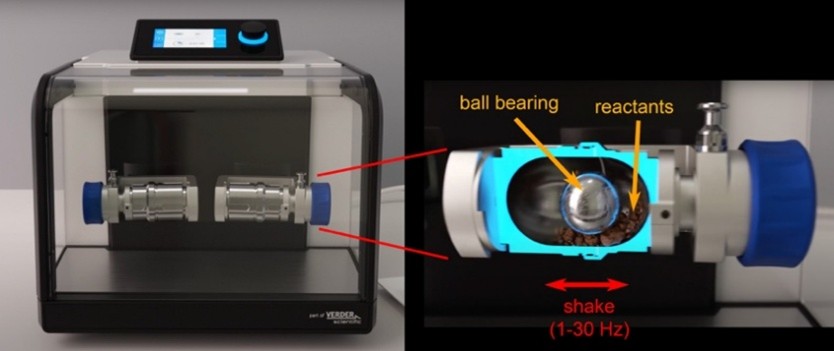Mechanochemistry: Sustainable Solvent-Free Chemistry
This project explores solvent-free mechanochemical synthesis to reduce the environmental impact of chemical research. By developing sustainable routes for widely used compounds, it aims to cut CO₂ emissions and promote greener practices in academic and industrial chemistry.
Groups
Research themes
Project status
Content navigation
About
Solvents are ubiquitous in chemistry, with over 99% of chemical reactions taking place in a solvent (in both research and industry). However, most solvents are derived from non-renewable petrochemical feedstocks and disposed of via incineration, a costly and environmentally damaging process which contributes to global warming and acid rain.
In the past year, the Research School of Chemistry purchased and disposed of approximately 22,000 litres (approx. 20 tonnes) of predominantly hydrocarbon-based solvents, leading to an estimated 45-55 tonnes of CO₂ emissions upon incineration. This figure does not account for the additional emissions generated from the extraction, purification, and transportation of these solvents. The Research School of Chemistry is one of the smaller chemistry schools within Australia's Group-of-Eight-Universities, highlighting a broader issue within the academic chemistry community. Reducing solvent use in chemical synthesis would have a significant environmental impact.
Mechanochemistry is a field of chemistry focused on initiating and controlling chemical reactions through mechanical force. These reactions can be performed in the solid state, usually in a ball mill, with little to no solvent. However, the field is in its infancy when it comes to molecular (organic and inorganic) chemistry. This project will focus on performing chemical reactions sustainably, without the use of solvents. We will target the solvent-free synthesis of compounds that are commonly used in research and/or industry, developing more sustainable routes these compounds. Students will gain experience in mechanochemistry, handling air and moisture-sensitive reagents and sustainable/green chemistry.

